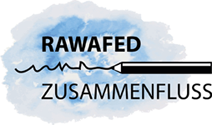The Language Barrier
This article was first published on October 15, 2018
Yesterday fireworks echoed around the city like thunderclaps, balloons floated through the sky until it was hard to distinguish them from the stars, and the people of Berlin materialized in happy rushes to celebrate Tag der Deutschen Einheit, or German Unity Day. This day of festivity, gathering, and making music commemorates the reunification of Germany in 1990, and it was my first time to be a part of it. A wall had divided Germany in two, a wall dividing people of the same language, culture, and history into two places. They had so much in common, and yet could not share their lives with one another because of an insurmountable barrier of cement, barbed wire, and ammunition.Recently, I was on a boat tour of Berlin with a number of Afghani families. I had gone on the outing in hope of speaking with the Syrian women who occasionally attended these weekly gatherings, but instead found myself surrounded by a group of friendly, curious people with whom I could not communicate.I have not met many situations in Berlin in which there was not at least one person who could speak to me in English, but those few instances have left me with a number of impressions. Sometimes I have felt caught, enclosed in my inability to communicate or understand, in a web of confusion and frustration. Everything is outside of my grasp, foreign and strange.
Other times, when I distance myself from the innate desire to understand, I can simply enjoy the sounds of another tongue with appreciation for the culture and vivid life that surrounds me. I can focus on tone, and body language, and find the emotion of speech without the words. And often, I can feel a connection to people that is deep and poignant without words, as our shared humanity allows us to understand one another in smiles and gestures without grasping for language.On that covered boat as I observed the happy chattering of women and children, the adoration of a father for his little boy as he pointed at the water, the smiles given to me in lee of conversation, I felt a connection as much as a barrier. I wanted to communicate and forge friendships that felt far away because of our language barrier, but I also saw that we shared a love for family, and an appreciation of the beautiful things that lined the sunlit river. We had so much in common, and I found that our shared interest in one another and the most foundational things in life could lead to its own type of friendship.As I celebrated the unity of Germany along with millions of others yesterday, I remembered an essay I wrote in high school, about how learning languages breaks down barriers.
Although years have passed and I have learned how much more difficult that process is in action than on paper, I have also learned the comradery that can come when you can share even a few words with a person who does not speak the same mother tongue. I believe that a language barrier can divide people who share many of the same passions, worries, and challenges, just as the Berlin wall divided a people who had everything in common except on what side of a barrier they lived.But it is essential to realize that we let language divide us, see this wall as an excuse to not reach out or attempt to connect with another. The truth, on the other hand, is that even without words, we can forge bonds through consideration for one another, lending a helping hand, and a smile. Actions speak louder than words, it has been said. We may not be able to take a sledgehammer against the walls of language, but every attempt we make to reach out and grasp the hands of others over that wall, to connect as people and lift one another up, can bring unity just as surely as that which happened in Germany in 1990.
Photo by Ian Schneider on Unsplash










